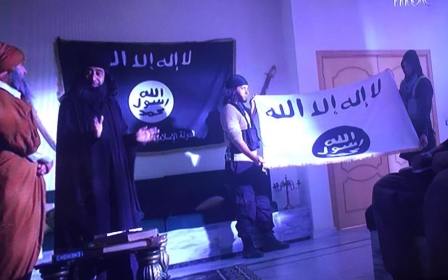IS leader reportedly bans release of execution footage

After months of releasing footage and pictures of beheadings online, the Islamic State (IS) has reportedly decided to put an end to the release of the films.
The group’s leader, Abu Bakr al-Baghdadi, has called for a ban of released footage of the beheadings carried out by the group, according to a Islamic State media source quoted in several Arabic-language reports on Friday.
In a statement reportedly sent to IS media offices in Syria and Iraq, Baghdadi explained that his restriction of the footage is meant "to be considerate of Muslims and children's feelings who may find these scenes grotesque", the IS source was reported as saying.
In the past year, IS has regularly shared footage of executions of hostages, including journalists and aid workers, and fighters whom they are battling in Iraq and Syria.
Execution videos typically showed men in orange jumpsuits kneeling, heads bowed, with one black-clad and masked gunman behind each and black IS flags in the background.
Baghdadi issued his statement several weeks ago, calling on his followers to ensure that any films released of the beheadings did not include scenes of the actual execution and is limited to moments before or after the act, according to the quoted IS source.
The new policy reportedly angered some members of IS, who despite following his order, believe the footage was aimed at scaring of the group’s enemies rather than the general public.
The ban appears to have been in place for several weeks as recent footage released by IS has not featured execution images, according to observers following IS’s regular media releases.
Middle East Eye propose une couverture et une analyse indépendantes et incomparables du Moyen-Orient, de l’Afrique du Nord et d’autres régions du monde. Pour en savoir plus sur la reprise de ce contenu et les frais qui s’appliquent, veuillez remplir ce formulaire [en anglais]. Pour en savoir plus sur MEE, cliquez ici [en anglais].




